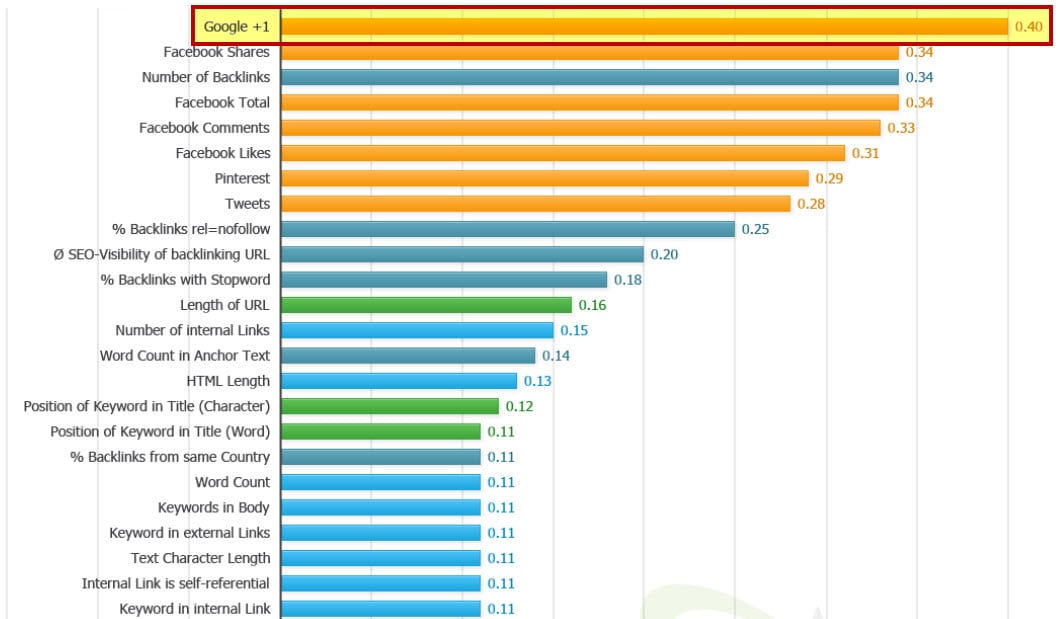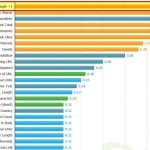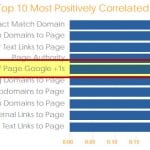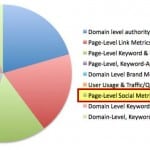
Social media has long been rumored to be the next big driver of search engine relevance, eventually replacing backlinks. And for the first time, SEOs have discovered strong correlations between the number and diversity of social votes, and better search engine rankings. In short, websites with more “likes”, “tweets”, and “+1s” tend to rank better.
These results come from three recent “state of SEO in 2013″ studies done by Search Metrics, Moz, and Netmark. While each study disagreed with each other on various topics, social media was not one of them.
Social media is one of the leading indicators of content that will rank high on search engines (see this thorough post by Cyrus Shepard for more data). Invariably, highest ranking pages had scores of Facebook likes and shares, Twitter tweets, and, more than anything else, Google +1s.
Now, before going hog-wild and “+1” every page on our websites, remember, “correlation does not imply causation.” It is possible that social media votes have little to do with the ranking ability of content, and simply that quality content Google ranks highly also tends to collect more social votes. Or, it could be that Google will rank content higher if it has many social votes. It is not known for sure.
What is for sure is that every website should have social media integrated on every page, giving guests the ability to like, tweet, and +1 website content as they see fit. Hotel marketers need to make social interaction as easy as possible for their guests.
The following charts in the slideshow below are from the three studies. Search Metrics lists Google+1s more than anything else as the highest correlation to better search engine rankings. Moz mentions all social network metrics combined as an important ranking metric, while Netmark also singles out Google+1s as a correlation to higher rankings.
This content is created collaboratively in partnership with our sponsor, Buuteeq.
- Search Metrics uses Google search results and the various factors influencing it using the Spearman correlation – a high positive correlation coefficient occurs for a factor if higher ranking pages have that feature / or more of that feature, while lower ranking pages do not / or have less of that feature.
- Netmark study showed a consistent positive correlation between social media metrics and Google’s search engine rankings. Google +1’s, a relatively new social media metric, proved to be our most highly correlated social media factor on both the page and domain level.
- Moz survey respondents say links are still believed to be the most important part of the algorithm (approximately 40%). Keyword usage on the page is still fundamental, and other than links is thought to be the most important type of factor. SEOs do not think social factors are important in the 2013 algorithm (only 7%), in contrast to the high correlations.
The Daily Newsletter
Our daily coverage of the global travel industry. Written by editors and analysts from across Skift’s brands.
Have a confidential tip for Skift? Get in touch



